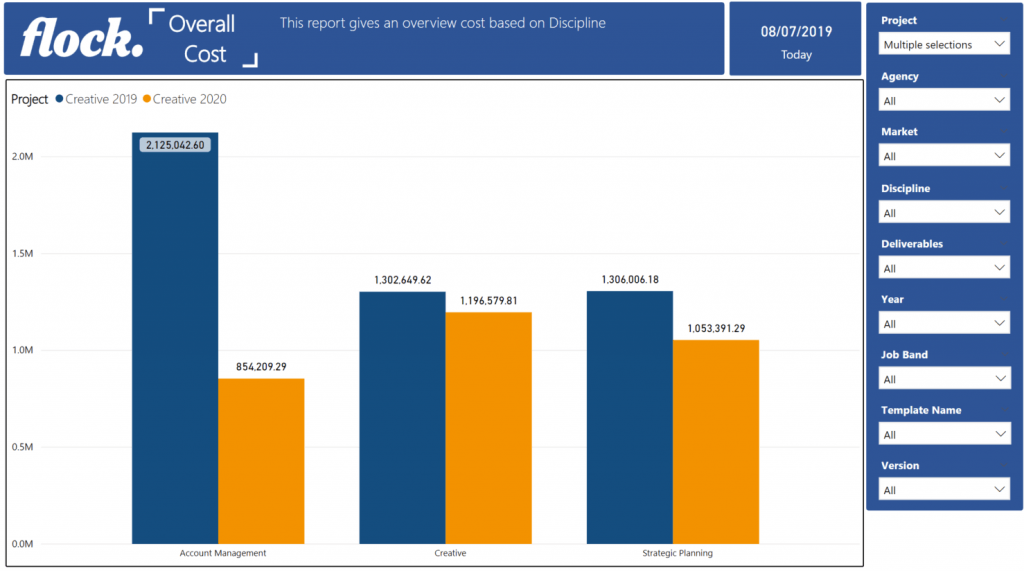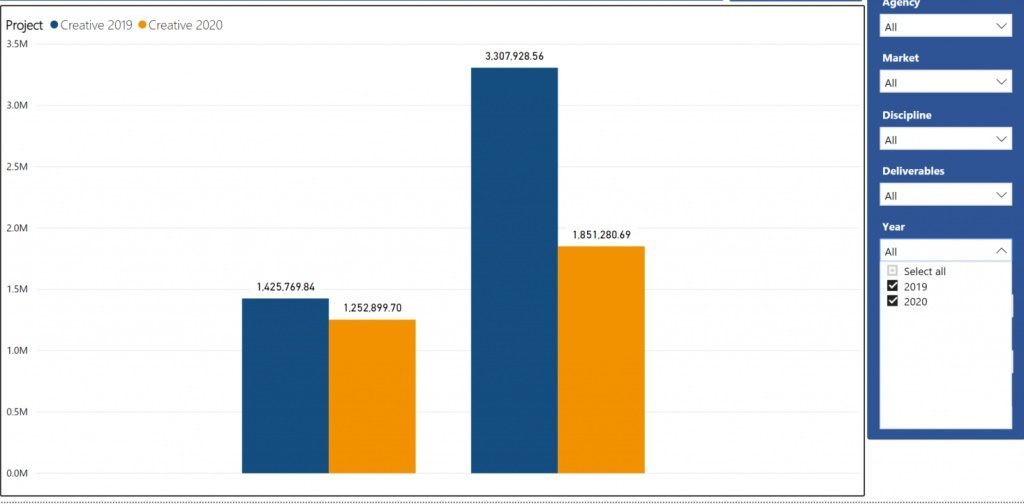The amount of data we have available to us is only growing, and with over $200 billion a year being spent on agency fees, scoping for work would seem like an ideal time to leverage it. However, the evidence shows that data is not used well when scoping. Why aren’t all advertisers adopting the most easy, fair and data driven approach possible when scoping their agencies?
When Edison said, “Genius is one percent inspiration and ninety-nine percent perspiration”, he certainly wasn’t referring to the output of agencies, but it’s a fair descriptor of how agencies work to deliver value with the ideas they unlock and execute.
The difficulty can be knowing exactly what you are asking for and paying for: the inspiration (creativity and strategy) and the perspiration (client services and production) of your agency. This is what the rigor of data can help solve, providing a powerful tool to help make scoping agencies easier, better – and more insightful.
Using data (and the resulting improvements in alignment, clarity, and transparency with better scoping), can only lead to better trust, better relationships, and fosters the optimal conditions for enhanced creativity and performance.
It is why we have built our Flock Agency Scoping Tool
Here are some of the ways in which data is best used to enable great agency scoping:
- Quality Assurance
Scope of work data can be messy. It’s unsurprising that manual scoping is becoming more and more extinct given the large inaccuracies as well as inefficiencies of manual scopes of work, often including irregularities input by agencies and advertisers. The integrity of any analysis resulting from any scoping exercise manual or otherwise is dependable, of course, on the quality of the input. Data must in the first instance be quality – but human error, unit of measurement discrepancies and incorrect logic are just some of the causes of inaccurate data within scope of work processes we see. Data quality is one of the biggest inhibitors for scoping efficiency. Therefore, ensuring the quality of scoping input factors is integral for a solution managing scoping of agencies, and is also one of the factors that must be in place to allow meaningful conclusions to be made from data than can help inform decisions.
The Flock Agency Scoping Tool automates scope data collection assuring data quality.

2. Scoping Consistency
Advertisers are also restricted by scope of work responses containing unstandardised data. The resulting inconsistencies have implications on resource allocations and fees, and any conclusions that are made from the data will be more or less misleading and limited, which doesn’t bode well for resulting decisions.
One example of this, is the inconsistencies we see in unstandardised roles and seniority levels between agencies, which when viewed in context of a large number of FTE’s can have very significant implications on the levels of the resource allocated to the work, and the associated cost. Another problem that prevents accurate and meaningful analysis being available is the use of free text fields and uncategorised data entries. While pass through data is another cost that is often not consistent.
Advertisers can have scope of work data readily available but be unable to use it effectively to extract the insights they want simply due to data inconsistencies. Data included in a scope response that is consistent through standardisation and sufficiently granular (distinguishable between categories) will address these problems, and allows accurate analysis that is clear to interpret and gives advertisers a true evaluation of their spends.
The Flock Agency Scoping Tool has over 500 standard job descriptions ensuring scoping consistency

3. Real Time Analysis
Advertisers also need their data to be readily available to support the timely decisions they need to make. This must be supported by a harmonised and centralised single source of data. A scoping system that both saves time in collecting significant and varied amounts of scoping data, and produces analysis of responses to review or share on a real time basis proves invaluable. The right data becomes immediately available to the right people, analysis is clear and relevant and detailed in its variables. Armed with this information, usual processes to complete scopes of work take far fewer steps. The result is, time is saved and a more streamlined decision making process is achieved, ensuring work is negotiated, approved and can progress. Increasingly more time is freed for focusing on strategic priorities as automated solutions help the day-to-day.
The Flock Agency Scoping Tool has real time analysis by market, by brand, by scope, by agency, by discipline, by level and by hours, costs, overhead, margin and passthrough.


4. Benchmarking has a place
Whilst not always appropriate to benchmark all elements of a scope of work, there are instances in which the right use of benchmarks can improve transparency of spend and ensure negotiations are reasonable, producing better alignment with your agency. Benchmarks when driven by significant data and utilised alongside good insight into the scope can support good and fair scoping on a number of elements such as rates, appropriate alignment of resources, and deliverables. However, without conversations and insight by experienced practitioners benchmarks can be unhelpful and inaccurate. Of course, the larger the pool of data, the more likely that the averages scope elements are benchmarked against will be relevant for the specific advertiser.
5. Provides a Baseline
Best practice is to start afresh with each year’s scope, but how can we measure what exactly has changed within a new scope and check that we’re not asking for more, for less without a consistently formatted and accurate scope of work process to deliver good data? Prior year data can provide a baseline and inform benchmarks. Advertisers benefit from ensuring they have a consistent process in place to manage their scoping data across all iterations, which improves transparency and understanding of spend allocations, enabling them to determine levels that will be required to complete a scope of work on a factual basis instead of relying on their intuition.
The Flock Agency Scoping Tool has real time analysis allowing year on year comparisons.

The use of data in scoping is by no means a substitute for experience and insight, but when used well and alongside the good judgement of skilled marketers it acts as a supportive tool for decision making and facilitating sustainable agreements. If you want to talk about how you can best use data to scope your agencies more effectively and efficiently, please get in touch and we can introduce you to our data driven Agency Scoping Tool. Drop a message to hello@flock-associates.com.


